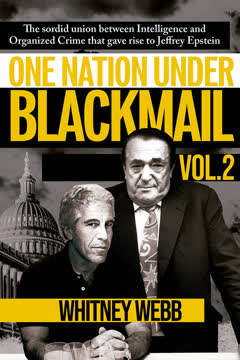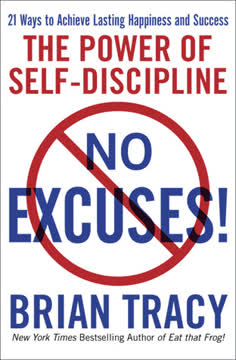Key Takeaways
1. Innocence Lost: The Erosion of Childhood Through Abuse
Elite pedophilia is the world’s best protected secret.
Systematic destruction. The memoir vividly portrays the systematic erosion of a child's innocence through sexual, physical, and emotional abuse within a clandestine network. The protagonist, Ann, experiences a childhood stolen by exploitation, forced into premature roles and exposed to horrors that shatter her sense of safety and normalcy. This loss of innocence is not merely a personal tragedy but a symptom of a larger, more sinister societal ill.
Premature maturity. Ann's forced adaptation to the adult world results in a distorted perception of reality. She learns to navigate the complex power dynamics of the network, anticipate the desires of her abusers, and suppress her own emotions. This premature maturity is a survival mechanism, but it also robs her of the opportunity to develop a healthy sense of self and form genuine connections.
Distorted reality. The abuse normalizes the abnormal, blurring the lines between right and wrong. Ann's understanding of love, trust, and intimacy becomes warped, leading her to seek validation in damaged relationships and perpetuate the cycle of abuse. The loss of innocence leaves her vulnerable to further exploitation and hinders her ability to heal.
2. The Corrosive Nature of Secrets and Deceit
The message that was most deeply embedded in the network, and the apparent reason for much of the horror and violence, was and still is all about secrecy.
Secrecy as a weapon. The network thrives on secrecy, using it as a tool to protect its members, control its victims, and perpetuate its activities. The constant need to conceal the truth creates an atmosphere of paranoia and distrust, further isolating Ann and making it difficult for her to seek help.
Distorted communication. The inability to speak openly about her experiences forces Ann to internalize her trauma, leading to dissociation, denial, and other defense mechanisms. This silence not only protects the perpetrators but also prevents Ann from processing her emotions and finding a path to healing.
Erosion of trust. The pervasive deceit within the network undermines Ann's ability to trust others, including her own mother. This lack of trust makes it difficult for her to form healthy relationships and seek support, perpetuating her isolation and vulnerability.
3. The Search for Love and Validation in Damaged Relationships
We are like infants, shaped by the psychic energy of those around us, condemned to turn everyone into a mother.
Distorted attachment. Growing up in an environment of abuse and neglect, Ann develops a distorted understanding of love and attachment. She seeks validation from her abusers, mistaking their attention for affection and becoming attached to those who cause her harm.
Cycle of seeking approval. This desperate need for validation leads her to form unhealthy relationships with other damaged individuals, including Patrick, who offer her a semblance of love and protection but ultimately perpetuate the cycle of abuse. Her relationships are characterized by power imbalances, manipulation, and a constant search for approval.
Inability to form healthy bonds. Ann's inability to form healthy bonds stems from her early experiences of betrayal and abandonment. She struggles to trust others, express her emotions, and establish boundaries, leaving her vulnerable to further exploitation and hindering her ability to find genuine love and connection.
4. Power Dynamics: Abuse, Control, and the Illusion of Choice
The world’s greatest curse is power abuse, which sabotages the best initiatives.
Power as a currency. The network operates on a system of power, where individuals are valued based on their ability to exert control over others. Ann is treated as a commodity, her body and mind exploited for the pleasure and profit of those in positions of authority.
Illusion of agency. While Ann sometimes appears to have a degree of agency, her choices are ultimately limited by the power dynamics of the network. She is forced to navigate a world where her survival depends on her ability to anticipate and comply with the desires of her abusers.
Internalized oppression. The constant exposure to power abuse leads Ann to internalize the messages of her oppressors, viewing herself as worthless and deserving of mistreatment. This internalized oppression further limits her ability to resist and seek help, perpetuating the cycle of abuse.
5. The Cycle of Trauma: Perpetrators and Victims Intertwined
My story shows where that road ultimately leads.
Perpetrators as victims. The memoir suggests that many of the perpetrators within the network are themselves victims of abuse, perpetuating a cycle of trauma that spans generations. They are driven by their own unresolved pain and a desire to exert control over others, repeating the patterns of abuse they experienced in their own childhoods.
Intergenerational trauma. This intergenerational trauma creates a complex web of interconnected individuals, each struggling to cope with their own pain and perpetuating the cycle of abuse. The network becomes a breeding ground for further trauma, as victims become perpetrators and the lines between right and wrong become increasingly blurred.
Lack of accountability. The absence of accountability within the network allows the cycle of abuse to continue unchecked. Perpetrators are protected by their positions of power and the code of silence that pervades the organization, making it difficult for victims to seek justice and break free from the cycle.
6. The Fragility of Hope and the Persistence of Memory
Only the experience of facing those fears yields the answer: that these messages are lies and that we are all, at our essence, pure souls.
Fleeting moments of hope. Despite the pervasive darkness of her experiences, Ann clings to fleeting moments of hope, often finding solace in her relationships with other damaged individuals. These moments of connection offer a glimpse of a better future, but they are often short-lived and ultimately lead to further disappointment.
Enduring trauma. The trauma of Ann's childhood leaves an indelible mark on her psyche, shaping her relationships, her sense of self, and her ability to trust. The memories of abuse haunt her, resurfacing in unexpected moments and triggering intense emotional reactions.
Power of memory. Despite the pain associated with her memories, Ann recognizes their importance in her journey toward healing. By confronting her past, she can begin to process her trauma, reclaim her narrative, and break free from the cycle of abuse.
7. The Blurred Lines Between Victim and Perpetrator
We are playing roles: me, the powerless slave/ruler; he, the powerful ruler/slave.
Complex roles. The memoir challenges the traditional dichotomy between victim and perpetrator, suggesting that these roles are often fluid and complex. Ann, as a victim of abuse, is sometimes forced to participate in the exploitation of others, blurring the lines between her own innocence and complicity.
Internalized abuser. This blurring of roles leads Ann to internalize the values and behaviors of her abusers, adopting their manipulative tactics and perpetuating the cycle of abuse. She struggles to reconcile her own desire for love and connection with the harmful actions she is forced to commit.
Moral ambiguity. The moral ambiguity of Ann's situation raises difficult questions about agency, responsibility, and the nature of evil. It challenges readers to consider the complex factors that contribute to abuse and the challenges of breaking free from its grip.
8. The Destructive Force of Unacknowledged Truth
As we work to remove our own blind spots, our lies and our greed, and heal from our own trauma, we also reach greater clarity about the deceit in the world.
Denial and its consequences. The network's success in perpetuating its activities relies on the denial of its existence and the suppression of the truth. This denial not only protects the perpetrators but also prevents victims from seeking help and holding their abusers accountable.
Personal transformation. Ann's journey toward healing involves confronting the painful truths of her past and challenging the lies she has been told about herself and the world. This process of self-discovery is essential for breaking free from the cycle of abuse and reclaiming her agency.
Collective healing. The memoir suggests that collective healing is possible only when society acknowledges the existence of these hidden networks and confronts the systemic issues that allow them to thrive. This requires courage, empathy, and a willingness to challenge the status quo.
9. The Illusion of Escape and the Inevitability of Confrontation
Creating sensation is a form of exploitation, and shows lack of understanding.
Temporary reprieves. Ann seeks escape from her traumatic reality through various means, including drugs, sex, and fleeting moments of connection. However, these escapes are ultimately temporary and do not address the underlying issues that perpetuate her suffering.
Inevitable return. The cycle of abuse inevitably draws Ann back into the network, forcing her to confront her abusers and the painful truths of her past. This confrontation is a necessary step in her journey toward healing, but it also carries significant risks.
Confrontation as a catalyst. The confrontation with her abusers forces Ann to make a choice: to continue perpetuating the cycle of abuse or to break free and reclaim her life. This decision requires courage, resilience, and a willingness to face the consequences of her actions.
10. The Search for Redemption in a World of Moral Ambiguity
If we can absorb the reality that many of the most rich and famous rape and kill children with impunity, how can we possibly continue arguing and vilifying each other over differences of opinion?
Moral complexities. The memoir presents a world of moral ambiguity, where individuals are forced to make difficult choices in the face of overwhelming circumstances. Ann's journey toward redemption involves grappling with her own complicity in the cycle of abuse and finding a way to atone for her actions.
Finding meaning. Despite the horrors she has experienced, Ann finds meaning in her survival and her ability to share her story. By speaking out against the network and advocating for other victims, she transforms her trauma into a source of strength and hope.
Call to action. The memoir serves as a call to action, urging readers to confront the hidden realities of power abuse and to work toward creating a more just and compassionate world. It emphasizes the importance of empathy, understanding, and a willingness to challenge the systems that perpetuate harm.
Last updated:
FAQ
What is Quest For Love: Memoir of a Child Sex Slave by Anneke Lucas about?
- Personal account of abuse: The memoir recounts Anneke Lucas’s childhood as a victim of a Belgian elite child sex trafficking network, exposing the realities of abuse, mind control, and exploitation by powerful individuals.
- Survivor’s journey: It details Anneke’s survival, her psychological and spiritual healing, and her struggle to reclaim her identity and truth after enduring extreme trauma.
- Historical and societal context: The book situates Anneke’s story within the context of the Dutroux case and Belgian network scandals, highlighting systemic corruption, denial, and the failure of justice.
Why should I read Quest For Love by Anneke Lucas?
- Unveiling hidden truths: The memoir exposes the world’s “best protected secret” of elite pedophilia and power abuse, challenging readers to confront uncomfortable societal realities.
- Inspiration through resilience: Anneke’s transformation from victim to survivor and advocate offers hope, insight into healing, and empowerment for those affected by trauma.
- Educational and ethical importance: The book emphasizes ethical storytelling, warns against sensationalism, and encourages empathy and social justice awareness.
Who are the main perpetrators described in Quest For Love by Anneke Lucas?
- Patrick Haemers: A central abuser, Patrick is depicted as both violent and tender, creating a traumatic bond with Anneke through cycles of abuse and affection.
- Michel Nihoul: A powerful network orchestrator, Nihoul is involved in sadistic rituals, torture, and the training of children for ongoing exploitation.
- Anneke’s mother (Sabine Michielsen): Complicit in Anneke’s abuse, her mother facilitated exploitation for personal gain, exhibiting manipulative and abusive behavior rooted in her own unresolved trauma.
What are the key themes and concepts in Quest For Love by Anneke Lucas?
- Power abuse and secrecy: The memoir explores how elites use secrecy to protect their crimes, perpetuating cycles of violence and societal blindness.
- Mind control and trauma: Anneke details psychological conditioning, dissociation, and survival mechanisms enforced by the network to maintain control over victims.
- Love, survival, and transformation: Despite the horrors, the search for genuine love and connection is central to Anneke’s healing and spiritual journey.
How does Anneke Lucas describe her relationship with Patrick Haemers in Quest For Love?
- Complex love and abuse: The relationship is marked by a confusing blend of love, fear, and violence, with Anneke clinging to the idea of love as a survival mechanism.
- Power dynamics and control: Patrick exerts total control, dictating Anneke’s actions, punishing her, and isolating her from others, deepening her trauma bond.
- Emotional and psychological impact: Anneke experiences deep shame, guilt, and confusion, struggling to reconcile Patrick’s moments of tenderness with his cruelty.
How does the Belgian network and organized abuse operate in Quest For Love by Anneke Lucas?
- Systematic exploitation: The memoir exposes a secretive network of powerful individuals who trafficked and abused children for pleasure, control, and status.
- Mind control and training: Victims were subjected to torture, drugging, and psychological manipulation to enforce obedience and dissociation.
- Societal complicity and cover-ups: Authorities and society often ignored or concealed the network’s activities, with investigations obstructed and perpetrators receiving lenient sentences.
What role do the Dutroux case and X-Witness testimonies play in Quest For Love by Anneke Lucas?
- Contextualizing the network: The Dutroux case is used to ground Anneke’s story in real-world events, exposing parts of the Belgian child sex trafficking network.
- X-Witness testimonies: Survivors like Regina Louf provided detailed accounts linking to unsolved child murders, but official investigations were sabotaged and closed without justice.
- Impact on survivors: The memoir discusses the disbelief, disrespect, and threats faced by survivors, highlighting societal denial and cover-up.
How does Anneke Lucas portray the psychological effects of trauma and abuse in Quest For Love?
- Dissociation and numbness: Anneke describes feeling detached from her body and emotions as a survival mechanism, often experiencing numbness and a sense of being “already dead.”
- Shame and self-loathing: Internalized shame, reinforced by abusers and family, leads to struggles with self-worth and self-acceptance.
- Conflicted identity and relationships: Trauma causes confusion about love, trust, and intimacy, shaping Anneke’s interactions and self-perception.
How does Anneke Lucas describe her healing and spiritual journey in Quest For Love?
- Spiritual awakening: Anneke experiences moments of profound spiritual insight, finding strength and connection beyond her suffering.
- Meditation and inner work: She credits meditation and teachings from spiritual figures like Paramahansa Yogananda for helping her reclaim her power and heal.
- Reclaiming identity and love: The journey involves moving from dissociation and self-loathing to self-acceptance, understanding perpetrators’ trauma without excusing their actions, and rediscovering her true self.
How does Quest For Love by Anneke Lucas address the role of family, especially her mother and stepfather?
- Complicity and betrayal: Anneke’s mother actively participates in her exploitation, deepening the trauma through manipulation and abuse.
- Stepfather’s absence: The stepfather is largely indifferent or absent, failing to protect Anneke and contributing to her isolation.
- Family as a survival challenge: Family relationships are portrayed as part of the abuse system, complicating Anneke’s sense of safety and belonging.
What are the key lessons and takeaways from Quest For Love by Anneke Lucas?
- Complexity of trauma bonds: The memoir illustrates how victims can develop deep, confusing attachments to abusers, challenging simplistic views of abuse.
- Power of spiritual healing: Anneke’s story shows that spiritual awakening and inner work can restore dignity, hope, and a sense of self beyond victimhood.
- Need for societal awareness and justice: The book calls for recognition of organized abuse, vigilance against denial and cover-ups, and accountability to protect children.
What are the best quotes from Quest For Love by Anneke Lucas and what do they mean?
- “Elite pedophilia is the world’s best protected secret.” Highlights the systemic secrecy and protection surrounding abuse by powerful elites, calling for exposure and awareness.
- “You’re only alive because of my protection.” Reveals the coercive control abusers exert, framing abuse as care and deepening the victim’s dependence.
- “Only the experience of facing those fears yields the answer: that these messages are lies and that we are all, at our essence, pure souls.” Reflects the spiritual insight that healing comes from confronting trauma and reclaiming one’s true self.
- “True love is love with power, and true power is power with love.” Contrasts authentic relationships with the abusive power Anneke experienced, pointing to the possibility of healing and mutual respect.
Review Summary
Quest For Love receives mostly positive reviews, with readers praising its raw honesty and powerful storytelling. Many find it deeply disturbing but important, shedding light on child trafficking and abuse. Some reviewers question the authenticity of certain details or find the graphic content overwhelming. The book is described as emotionally intense, eye-opening, and transformative. Readers appreciate the author's courage in sharing her story and her journey towards healing, though some struggle with the traumatic subject matter.
Similar Books
Download PDF
Download EPUB
.epub digital book format is ideal for reading ebooks on phones, tablets, and e-readers.









